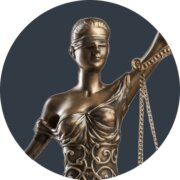Best Employer Lawyers in Auckland
Share your needs with us, get contacted by law firms.
Free. Takes 2 min.
List of the best lawyers in Auckland, New Zealand
About Employer Law in Auckland, New Zealand
The field of Employer Law, also known as Employment Law in Auckland, New Zealand, governs the relationships between employers and their employees. This legal field covers a wide array of topics, including workplace discrimination, dismissal, health and safety, wages, and benefits. Employers need to be aware of these laws in order to comply with them and maintain a harmonious workplace.
Why You May Need a Lawyer
Employment law can be complex, and disputes can often arise due to misunderstandings or perceived injustices. You may need a lawyer if you are an employer dealing with issues such as wrongful termination claims, wage disputes, or discrimination allegations. A lawyer can also provide guidance on proper compliance with employment laws to avoid potential future disputes. Employees may also need legal help in resolving these types of issues or when negotiating employment contracts.
Local Laws Overview
The key aspects of employment law in Auckland, New Zealand are outlined in the Employment Relations Act 2000 and the Health and Safety at Work Act 2015. These laws stipulate regulations on everything from minimum wage, to workplace safety, to the rights of employees and employers. The Employment Relations Act also encourages good faith relationships between employers and employees, promoting fair and balanced negotiations and agreements.
Frequently Asked Questions
1. What are the laws for unfair dismissal in Auckland?
Under the Employment Relations Act 2000, an employer cannot dismiss an employee without just cause and without following due process. An employee can take a personal grievance claim for unjustifiable dismissal to the Employment Relations Authority.
2. What are the laws regarding workplace discrimination?
The Human Rights Act 1993 provides protections against workplace discrimination based on various factors, including age, race, sex, marital status, and religion, amongst others. If an employee believes they’ve been discriminated against, they can make a complaint to the Human Rights Commission.
3. What are the minimum wage rules?
As per the Minimum Wage Act 1983, the minimum wage is set by the New Zealand government and is updated annually. Employers are obliged to pay at least the minimum wage to their employees, with different rates applicable for adults, starting-out workers, and trainees.
4. How are workplace health and safety regulated?
Workplace health and safety are governed by the Health and Safety at Work Act 2015. It places the duty of care on employers to ensure the safety of employees and visitors to the workplace.
5. What are the laws concerning employment contracts?
The Employment Relations Act 2000 requires every employee to have a written employment agreement. The agreement needs to express clearly the terms and conditions of employment, and must uphold minimum rights and responsibilities as outlined by New Zealand law.
Additional Resources
The Ministry of Business, Innovation and Employment (MBIE) offers various resources related to employment laws. The Employment New Zealand website also provides comprehensive information about employment rights and responsibilities. Additionally, the Employment Relations Authority and the Human Rights Commission are important governmental bodies dealing with employment matters.
Next Steps
If you find yourself in need of legal assistance related to employment law, start by contacting legal professionals who specialize in this field. They can provide advice and guidance tailored to your specific situation. It's also important to gather and document all information related to your case, such as contracts, correspondence, and witness statements, to support your legal proceedings.
Lawzana helps you find the best lawyers and law firms in Auckland through a curated and pre-screened list of qualified legal professionals. Our platform offers rankings and detailed profiles of attorneys and law firms, allowing you to compare based on practice areas, including Employer, experience, and client feedback.
Each profile includes a description of the firm's areas of practice, client reviews, team members and partners, year of establishment, spoken languages, office locations, contact information, social media presence, and any published articles or resources. Most firms on our platform speak English and are experienced in both local and international legal matters.
Get a quote from top-rated law firms in Auckland, New Zealand — quickly, securely, and without unnecessary hassle.
Disclaimer:
The information provided on this page is for general informational purposes only and does not constitute legal advice. While we strive to ensure the accuracy and relevance of the content, legal information may change over time, and interpretations of the law can vary. You should always consult with a qualified legal professional for advice specific to your situation.
We disclaim all liability for actions taken or not taken based on the content of this page. If you believe any information is incorrect or outdated, please contact us, and we will review and update it where appropriate.

















